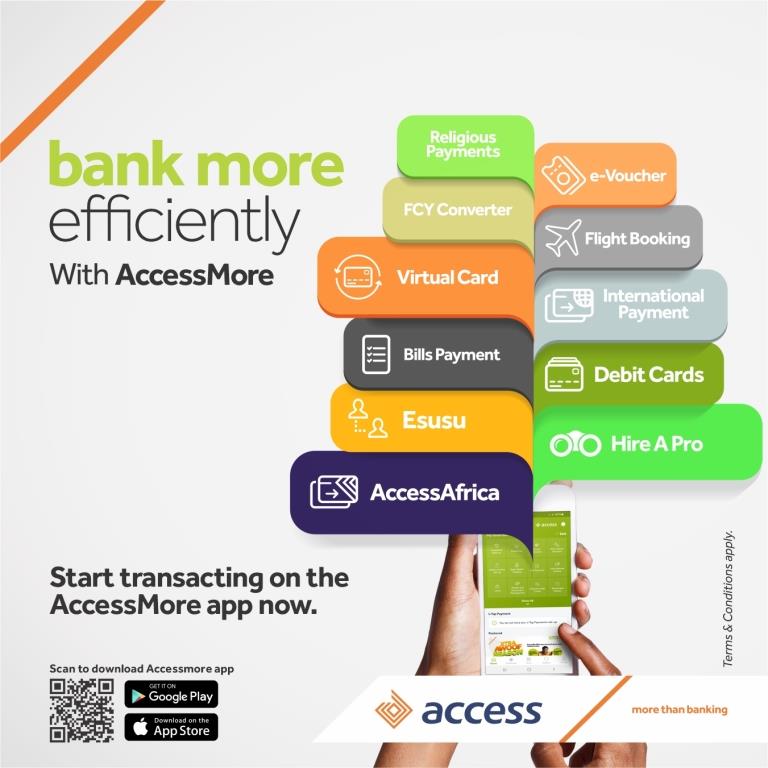Economy
The Gift Card Economy: Exploring the Rise of Gift Cards

The greatest way of expressing love and gratitude is through gifting. Since the history of mankind, the act of gifting is an integral part of every society in the world.
In traditional society, people send tangible items as gifts but the transition into a digital society has revealed gift cards to be the currency of the act of gifting.
Some time ago before gift card adoption evolved to a substantial extent like it is today, it was considered nothing more than a worthless and inefficient plastic card.
Today in Nigeria, gift cards have become the perfect gift choice for gift givers and recipients as well because of their convenience, portability and value. The transition to a more digital society has also reshaped people’s shopping behaviour, stirring a massive adaptation to online shopping, hence, giving more credence and value to gift cards.
With the use of gift cards, gift givers need not worry about the type of gifts to buy. They just simply purchase the gift cards from stores and send them to the recipient, who will redeem them for any type of gifts suitable to them or find means of how to sell gift cards.
Gift cards serve as a surprise gift for a retiree, employee, friend, lover and many more and it is very important to choose gift cards with the highest resale value when gifting them. This will enable them to profit from the high gift card rates if they don’t want to buy gifts from the store and decide to sell them.
Some recipients can even sell gift cards for cash if they don’t need the gift item.
With the massive acceptance of gift cards over the years, gift card trading will continue to grow with the economy as it gives a more personalized, digital and convenient gifting experience.
The Magical Transformation: From Inefficiency To Efficiency
The innovation of the first gift card in 1994 and other brands which later joined the gift card market in the early 2000s, was ensued by some bottlenecks which projected the invention as inefficient.
Apart from the major problem of gift card fraud which took a toll on the industry due to the feeble nature of the market, many customers did not utilise the gift cards they purchased.
Many people challenged the efficiency of gift cards when the New York Times in 2007 asserted that about $8 billion out of the $80 billion spent on gift cards in 2006 was not redeemed. In fact, due to the rate of unredeemed gift cards, some economists asserted that gift cards were poor gifts which were merely gifts bought for the issuing companies who earn “breakage” (unclaimed gift cards reclaimed by the issuing company) from them.
However, in recent times, due to the technological and e-commerce revolutions, the archaic perspective about gift cards had become history and gift cards have become the most desirable gifting experience.
The Trend Gap Of The Gift Card Economy: An Exchange of True Value
When we consider the constant e-commerce and digital revolutions we live, one may understand that people are open to giving and receiving gift cards for many reasons like;
1. Flexible Spending And Unlimited Choice Of Gift Cards:
Even though there are some restrictions on the closed-loop gift cards which would force users to only spend the gift card on that same brand, 78.7% of people still use gift cards from strange brands and about 87.7% tend to become customers afterwards. However, an open-loop gift can be redeemed at any store that accepts debit and credit cards. This type of gift card is not restrictive to brand stores, hence, the versatility of gift cards makes it a perfect gift choice.
2. Gift Card Purchases Are Now Planned:
Unlike the old popular belief that gift cards gifting is not properly planned which makes it a poor gift, a gift card report by Incomm stated that 86% of gift cards purchased in the US are planned and 55.8% of recipients received the gift cards for their brand of choice.
3. Number Of Unused Gift Cards Drop Annually:
In the early days of gift card usage, one of the problems was the big fraction of unredeemed gift cards. However, according to Bankrate, the number of unused gift cards reduced by 25% annually.
4. Gift Card Purchases For Personal Use:
Individuals tend to buy more gift cards for themselves than they did in the past ten years. According to research by Black Hawk Network, 33% of the gift cards purchased in 2019 were for the owners.
Some of the reasons individuals purchase personal gift cards are;
- Financial budgeting and diplomacy
- The convenience of gift card transaction
- The safety of gift cards
- An alternative method of payment
Conclusion
The gift economy is still a fast-growing one which has been predicted to reach about $440 billion by 2027. With the desire for convenience, value and safety in gifting and transactions, gift cards are the ideal gifting strategy and also, a very good way to make in-store and online transactions with ease.
Economy
Flour Mills Supports 2026 Paris International Agricultural Show

By Modupe Gbadeyanka
For the second time, Flour Mills of Nigeria Plc is sponsoring the Paris International Agricultural Show (PIAS) as part of its strategies to fortify its ties with France.
The 2026 PIAS kicked off on February 21 and will end on March 1, with about 607,503 visitors, nearly 4,000 animals, and over 1,000 exhibitors in attendance last year, and this year’s programme has already shown signs of being bigger and better.
The theme for this year’s event is Generations Solution. It is to foster knowledge transfer from younger generations and structure processes through which knowledge can be harnessed to drive technological advancement within the global agricultural sector.
In his address on the inaugural day of the Nigerian Pavilion on February 23, the Managing Director for FMN Agro and Director of Strategic Engagement/Stakeholder Relations, Mr Sadiq Usman, said, “At FMN, our mission is Feeding and Enriching Lives Every Day.
“This is a mandate we have fulfilled through decades of economic shifts, rooted in a culture of deep resilience and constant innovation. We support this pavilion because FMN recognises that the next frontier of global Agribusiness lies in high-level technical exchange.
“We thank the France-Nigeria Business Council (FNBC), the organisers of the PIAS, and our fellow members of the Nigerian Pavilion – Dangote, BUA, Zenith, Access, and our partners at Creativo El Matador and Soilless Farm Lab— we are exceedingly pleased to work to showcase the true face of Nigerian commerce.”
Speaking on the invaluable nature of the relationship between Nigeria and France, and the FMN’s commitment to process and product innovation, Mr John G. Coumantaros, stated, “The France – Nigeria relationship is a valuable partnership built on a shared value agenda that fosters remarkable Intercontinental trade growth.
“Also, as an organisation with over six decades of transformational footprint in Nigeria and progressively across the African Continent, FMN has been unwaveringly committed to product and process innovation.
“Therefore, our continuous partnership with France for the success of the Paris International Agricultural Show further buttresses the thriving relationship between both countries.”
PIAS is one of the most widely attended agricultural shows, with thousands of people from across the world in attendance.
Economy
NEITI Backs Tinubu’s Executive Order 9 on Oil Revenue Remittances

By Adedapo Adesanya
Despite reservations from some quarters, the Nigeria Extractive Industries Transparency Initiative (NEITI) has praised President Bola Tinubu’s Executive Order 9, which mandates direct remittances of all government revenues from tax oil, profit oil, profit gas, and royalty oil under Production Sharing Contracts, profit sharing, and risk service contracts straight to the Federation Account.
Issued on February 13, 2026, the order aims to safeguard oil and gas revenues, curb wasteful spending, and eliminate leakages by requiring operators to pay all entitlements directly into the federation account.
NEITI executive secretary, Musa Sarkin Adar, called it “a bold step in ongoing fiscal reforms to improve financial transparency, strengthen accountability, and mobilise resources for citizens’ development,” noting that the directive aligns with Section 162 of Nigeria’s Constitution.
He noted that for 20 years, NEITI has pushed for all government revenues to flow into the Federation Account transparently, calling the move a win.
For instance, in its 2017 report titled Unremitted Funds, Economic Recovery and Oil Sector Reform, NEITI revealed that over $20 billion in due remittances had not reached the government, fueling fiscal woes and prompting high-level reforms.
Mr Adar described the order as a key milestone in Nigeria’s EITI implementation and urged amendments to align it with these reforms.
He affirmed NEITI’s role in the Petroleum Industry Act (PIA) and pledged close collaboration with stakeholders, anti-corruption bodies, and partners to sustain transparent management of Nigeria’s mineral resources.
Meanwhile, others like the Petroleum and Natural Gas Senior Staff Association of Nigeria (PENGASSAN) have kicked against the order, saying it poses a serious threat to the stability of the oil and gas industry, calling it a “direct attack” on the PIA.
Speaking at the union’s National Executive Council (NEC) meeting in Abuja on Tuesday, PENGASSAN President, Mr Festus Osifo, said provisions of the order, particularly the directive to remit 30 per cent of profit oil from Production Sharing Contracts (PSCs) directly to the Federation Account, could destabilise operations at the Nigerian National Petroleum Company (NNPC) Limited.
Mr Osifo firmly dispelled rumours of imminent protests by the union, despite widespread claims that the controversial executive order threatens the livelihoods of 10,000 senior staff workers at NNPC.
He noted, however, that the union had begun engagements with government officials, including the Presidential Implementation Committee, and expressed optimism that common ground would be reached.
Mr Osifo, who also serves as President of the Trade Union Congress (TUC), expressed concerns that diverting the 30 per cent profit oil allocation to the Federation Account Allocation Committee (FAAC), without clearly defining how the statutory management fee would be refunded to NNPC, could affect the salaries of hundreds of PENGASSAN members.
Economy
Dangote Cement Deepens Dominance, Export Activities With $1bn Sinoma Deal

By Aduragbemi Omiyale
To strengthen its domestic market dominance, drive its export activities, optimise existing operational assets and enhance production efficiency and capacity expansion, Dangote Cement Plc has sealed $1 billion strategic agreements with Sinoma International Engineering for cement projects across Africa.
The president of Dangote Industries Limited, the parent firm of Dangote Cement, Mr Aliko Dangote, disclosed that the deal reinforces the company’s long-term growth strategy and aligns with the broader aspirations of the Dangote Group’s Vision 2030.
According to him, Sinoma will construct 12 new projects and expand others for the cement organisation across Africa, helping to achieve 80 million tonnes per annum (MTPA) production capacity by 2030, while supporting the group’s overarching target of generating $100 billion in revenue within the same period.
Under the Strategic Framework Agreement, Sinoma will collaborate with Dangote Cement on the delivery of new plants, brownfield expansions, and modernisation initiatives aimed at strengthening operational performance across key markets.
The new projects include a new integrated line in Northern Nigeria with a satellite grinding unit, a new line in Ethiopia and other projects in Zambia/Zimbabwe, Tanzania, Sierra Leone and Cameroon. In Nigeria, Sinoma will also handle different projects in Itori, Apapa, Lekki, Port Harcourt and Onne.
The projects signal Dangote Cement’s sustained commitment to consolidating its leadership position within the African cement industry, while enhancing its competitiveness on the global stage.
Chairman of the Dangote Cement board, Mr Emmanuel Ikazoboh, during the agreement signing event in Lagos, explained that the new projects would enable the company to play a critical role in actualising Dangote Group’s Vision 2030.
The new projects, when completed, will increase Dangote Cement’s capacity and dominant position in Africa’s cement industry.
On his part, the Managing Director of Dangote Cement, Mr Arvind Pathak, said the agreement reflects the company’s determination to grow its investments across African markets to close supply gaps and support the continent’s infrastructural ambitions.
According to him, Dangote Cement is committed to making Africa fully self‑sufficient in cement production, creating more value and linkages, leading to increased economic activities and a reduction in unemployment.
-

 Feature/OPED6 years ago
Feature/OPED6 years agoDavos was Different this year
-
Travel/Tourism10 years ago
Lagos Seals Western Lodge Hotel In Ikorodu
-

 Showbiz3 years ago
Showbiz3 years agoEstranged Lover Releases Videos of Empress Njamah Bathing
-

 Banking8 years ago
Banking8 years agoSort Codes of GTBank Branches in Nigeria
-

 Economy3 years ago
Economy3 years agoSubsidy Removal: CNG at N130 Per Litre Cheaper Than Petrol—IPMAN
-

 Banking3 years ago
Banking3 years agoSort Codes of UBA Branches in Nigeria
-

 Banking3 years ago
Banking3 years agoFirst Bank Announces Planned Downtime
-

 Sports3 years ago
Sports3 years agoHighest Paid Nigerian Footballer – How Much Do Nigerian Footballers Earn






















Pingback: The 10 Most Common Gift Cards In Nigeria In [2025] - Nosh
Pingback: How To Pay For Amazon Prime Subscription In Nigeria | Business Post Nigeria